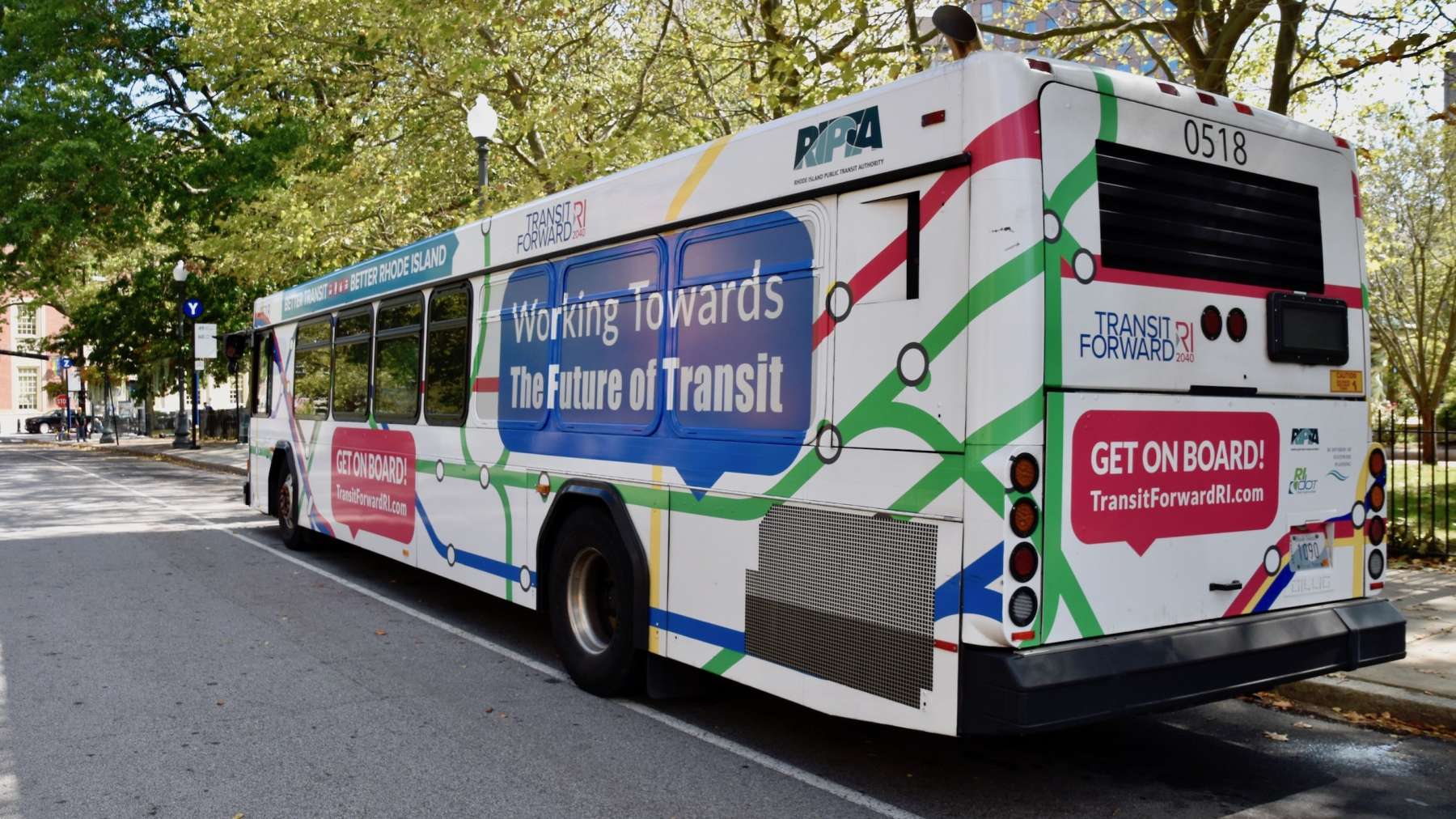Martin Lynn: What does “we’re public transit” even mean?
“The largest economic zones in the world all have incredibly well funded, well maintained, affordable, accessible, fast, easy to use, and constantly running public transit. If we want to grow our local economy, our leaders should look no further than investing in transit. “
March 28, 2023, 1:26 pm
By Martin Lynn
“We’re public transit” is why the RIde, RIPTA’s disabled bus service, told me they couldn’t accommodate my disability.
To be specific, I was asking for a ride time of approximately 1 hour and 40 minutes to and from work, which is within five minutes of how long it takes me to travel on RIPTA’s regular buses. According to the RIde program, they comply with the federal Americans with Disabilities Act (ADA) by providing ride times comparable to able-bodied public transit. However, I would often have my pickup window start almost 2 hours and 15 minutes before I needed to arrive at work. They told me that their system calculated my route starting at a specific time and did not even acknowledge me when I told them their system was calculating the wrong time.
I talked to customer service agents, bus drivers, the head of the accommodations department, an executive at RIDE, and even a liaison for voters like me employed by the Rhode Island State Senate. I told the state liaison that the entire state disability transit system could be systematically calculating longer transit times than normal for many riders, thereby violating ADA guidelines and potentially forfeiting federal funds for the entire state transit system. I also told them that a similar lawsuit in the 80s had been filed and won in Massachusetts for the same issue and an oversight committee was founded to keep state transit in check. When I said that, the state liaison stopped questioning my ride time, and suddenly the pickup window for my RIde trips matched my normal commute time.
Google maps has a public transit option and you can set your arrival or departure time. If your estimated RIde time is significantly off from that, you might have a complaint.
The General Assembly is starting oversight hearings on the RIde soon, as well as holding budget hearings on the Rhode Island Public Transit Authority (RIPTA) and the Rhode Island Department of Transportation (RIDOT) this Wednesday. But I honestly don’t trust that the outcomes of those hearings will be a robust public transit infrastructure that serves people of all ages and abilities.
What does “we’re public transit” even mean? We’re unreliable so don’t count on us? We have never invested in this because we’d rather you use a car? We don’t care enough to try? What does it actually mean?
In Rhode Island, like every other public service, it means “set your expectations low, because we’re not going out of our way to make it better.”
“We’re public transit” is not a good excuse. Places like New York City, San Francisco, Boston, and Seattle all have halfway decent transit. New York is gigantic, extremely traffic heavy, and very dense. Even then, you can get to most places in the city in an hour or less at peak times. And if you need to get out of the city, you can get halfway into New Jersey or Connecticut in an hour and a half or less. Transit in NYC also runs until 4am. New York may not have the best public services on the planet, but at least they exist. New York and Boston understand that having good public transit allows people to actually get to work. That means that they pay taxes and generate revenue for the state.
In Rhode Island, while bars are open and people are more prone to drunk driving, transit stops at midnight, and in many cases earlier. We have a hub-and-spoke system, which allows the state to run inefficient transit at a lower budget. It takes almost two hours to get from a neighborhood in Providence to a neighborhood in Newport.
Transit groups in Rhode Island have been proposing inter-state trains for decades. Reliable, dependable trains are something every developed nation in Europe and Asia has in common. It’s not a hippie, eco, communism thing. It’s a business thing. The largest economic zones in the world all have incredibly well funded, well maintained, affordable, accessible, fast, easy to use, and constantly running public transit. If we want to grow our local economy, our leaders should look no further than investing in transit.
Throwing your hands in the air and saying “It’s public transit,” is a joke. But I’m not laughing..
Martin Lynn is a musician and recently graduated with a computer science degree from Rhode Island College.






